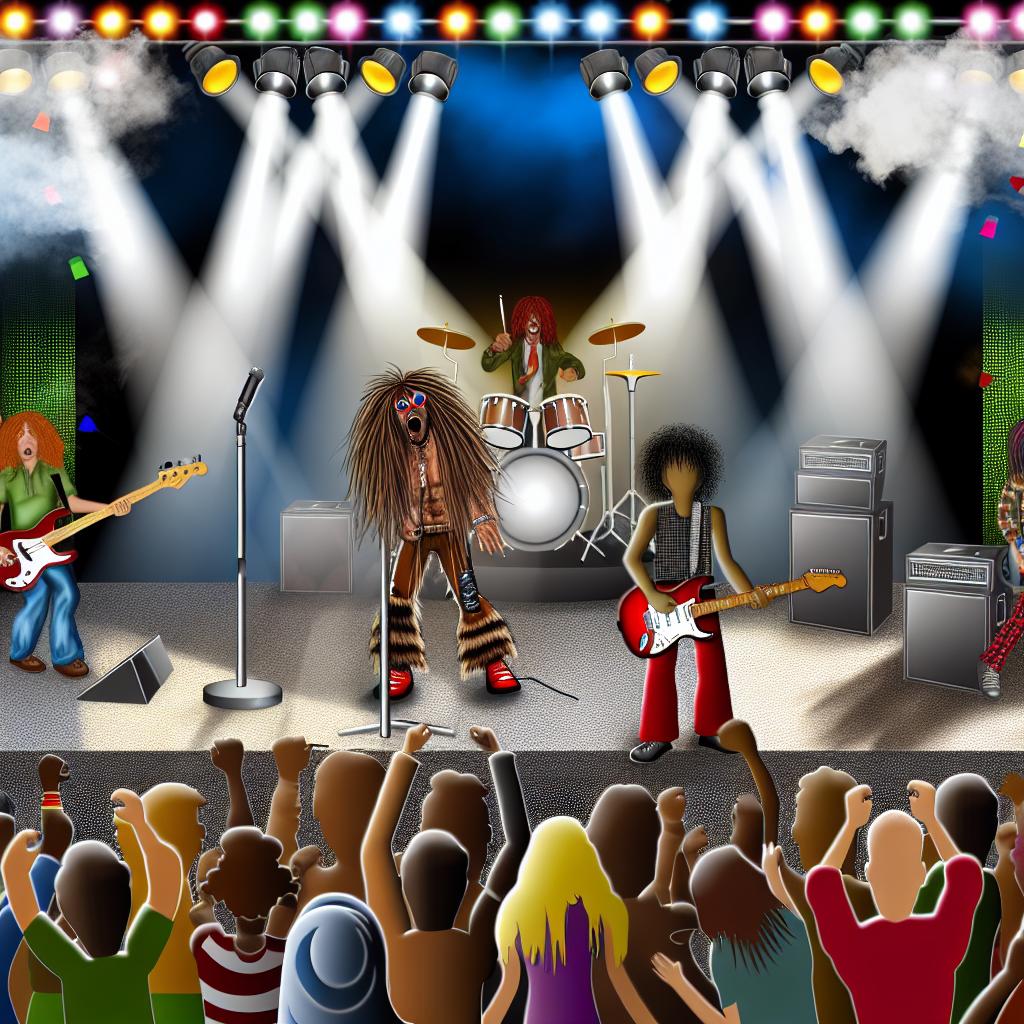The Who at Woodstock (1969)
The Woodstock music festival in 1969 was a landmark event that featured some of the most influential music acts of the era, and among them, The Who delivered a performance that is remembered as one of the greatest in the history of rock music. The band took the stage in the wee hours of August 17, 1969, at a time when the festival was well underway and the audience was immersed in the transformative spirit of the era. The Who’s set at Woodstock was characterized by its formidable energy and a sense of chaos that seemed to define the festival itself. Within this thrilling atmosphere, one of the most iconic moments unfolded when political activist Abbie Hoffman interrupted the performance to make a speech. Pete Townshend, the band’s guitarist, responded in a manner that would become rock folklore by striking Hoffman with his guitar. This incident not only underscored the high-stakes emotions of the time but also captured the raw, unruly energy of The Who’s live shows. The band’s performance included powerful renditions of tracks from their groundbreaking rock opera, Tommy, cementing their place in the annals of music history.
Live at Leeds (1970)
Moving forward from their legendary Woodstock set, The Who continued to build on their reputation as an electrifying live act with their performance at the University of Leeds on February 14, 1970. This concert was immortalized in what many consider one of the greatest live rock albums, Live at Leeds. The album captures The Who at a pivotal moment in their career, showcasing their ability to deliver a flawless live performance with raw energy and dynamic sound. Unlike studio recordings, live performances of The Who had an incomparably visceral quality; this was especially evident in the band’s treatment of songs like “Substitute” and an extended, virtuoso performance of “My Generation.” These tracks demonstrated not only the band’s musical prowess but also their capability to engage and hold an audience in thrall, pushing the boundaries of what was considered possible in a live rock performance. The significance of this album in rock history cannot be overstated, as it stands as a testament to The Who’s skill in transforming the concert experience into something grand and unforgettable.
The Isle of Wight Festival (1970)
In the same year, The Who once again proved their formidable stage presence at the Isle of Wight Festival on August 29, 1970. This performance further solidified their status as one of the preeminent live bands of the era. The Isle of Wight Festival, known for attracting some of the biggest names in music, was an ideal platform for The Who to showcase their commanding presence and high-octane performance. During their set, the band delivered an electrifying collection of tracks from their acclaimed rock opera, Tommy, alongside hits such as “Pinball Wizard” and “Magic Bus.” These performances displayed not only the band’s musical versatility but also their incredible ability to energize massive audiences, a quality that has always set The Who apart from many of their contemporaries. Through sheer dynamism and the synergy of their live performances, The Who left an indelible mark on the attendees of the festival, ensuring their place in the collective memory of rock enthusiasts across generations.
Benefit Concert for Kampuchea (1979)
A decade later, The Who participated in the Benefit Concert for Kampuchea, held at the Hammersmith Odeon in London on December 28, 1979. This concert was a philanthropic effort aimed at raising funds for victims of the war in Cambodia, an endeavor that was not only noble but also showcased the power of music as a force for social good. Organized by Paul McCartney, the series featured various rock icons of the time, but The Who’s performance stood out as particularly memorable. The setlist included their classic hits “Baba O’Riley” and “Behind Blue Eyes,” ensuring that the audience was treated to timeless pieces performed with passion and skill. This event was notable not just for the humanitarian cause but also for providing a platform for stellar musicianship, reminding the world of The Who’s enduring appeal and relevance in the rock domain.
Quadrophenia Tour (1996-1997)
Fast-forwarding to the mid-1990s, The Who embarked on a tour to support their seminal album Quadrophenia from 1996 to 1997. This tour was distinguished by its revival of the band’s classic work through the integration of modern technology and musicianship. Embracing an ambitious multimedia approach, the tour offered a comprehensive and immersive experience for audiences, providing a deeper connection to The Who’s music. They utilized visual projections and live narration, enhancing the storytelling aspect of their performances and adding a fresh dimension to iconic tracks such as “The Real Me” and “Love, Reign O’er Me.” This tour highlighted the timeless nature of The Who’s music and their commitment to innovation, demonstrating that their artistic vision remained as strong and influential then as it was at their peak decades earlier. By rejuvenating their established works with contemporary techniques, The Who ensured that their legacy would be appreciated by both seasoned fans and new generations alike.
For anyone wishing to delve deeper into the storied history of The Who’s live performances, it is worthwhile to explore resources from trusted music archives such as the Rock & Roll Hall of Fame or Rolling Stone. These sources provide comprehensive and insightful looks into the band’s history and contributions to the world of music.
